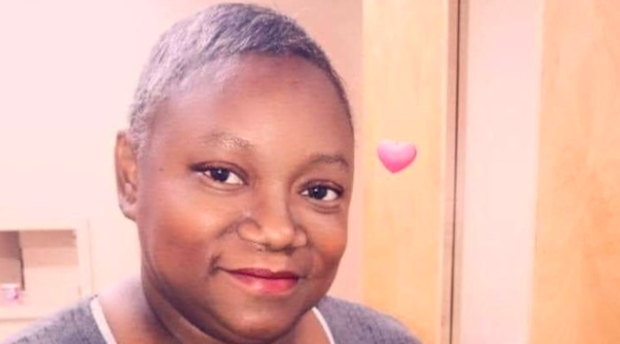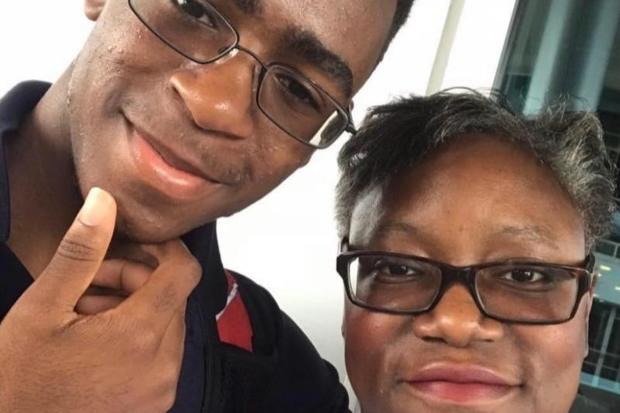Fri 25 December 2020:
“I don’t trust this hospital,” Dr. Susan Moore said from her hospital bed in Indiana, an oxygen tube hooked up to her nose. “That is not how you treat patients.”
Moore, an Indianapolis physician who was being treated for COVID-19 at Indiana University Hospital North, died of the virus this week. Earlier this month, she posted a video to Facebook to share that she believed she was not receiving proper medical care because she was Black.
The message she shared: Not even her status as a doctor shielded her from the inferior medical care long endured by other African Americans.
Her White doctor didn’t believe she was short of breath, she said – even though he knew he was treating a fellow licensed physician. Staff at the hospital near Indianapolis attempted to discharge her early, Moore said. And her pleas for medication to quiet pain in her neck were met with sneers, she said.
“I was crushed. He made me feel like a drug addict. And he knew I was a physician. I don’t take narcotics,” Moore recalled in a Dec. 4 video viewed by millions. “I put forward and I maintain if I was White, I wouldn’t have to go through that.”

A photo of Dr. Susan Moore shared by Alicia Sanders and Rashad Elby, who organized a GoFundMe for her family.
Moore, 52, died this week, another victim of a virus that is ravaging African Americans and exposing racial disparities and discrimination rampant in the nation’s health-care system. Her video, first shared in physicians’ Facebook groups and more broadly after Moore’s death, has become a rallying cry to confront bias in the medical system.
Moore tested positive for the coronavirus on November 29 and said her symptoms included a high respiratory rate, high heart rate, high fever and coughing up blood. She described the uphill battle she faced in getting treatment from White doctors and nurses in the hospital, including begging for the antiviral drug Remdesivir, waiting hours for pain medication, and demanding a CT scan of her chest to prove her pain was real.
Her scan detected pulmonary infiltrates and inflamed lymph nodes, she said, but she continued to wait hours for pain medication.
“All I know is that I am in intense pain,” Moore said in the heartbreaking video, adding that the doctor downplayed her pain. “[The doctor] made me feel like I was a drug addict, and he knew I was a physician.”
She spoke to a patient advocate, who she says told her nothing could be done. She also asked to be transferred to a different hospital, but was told she should just go home.
“This is how Black people get killed,” Moore said. “When you send them home and they don’t know how to fight for themselves.”
As a doctor, Moore clearly knew what to ask for, but struggled to continue advocating for herself as her condition worsened.
“I put forward and I maintain, if I was White, I wouldn’t have to go through that,” Moore said. “And [the doctor] never came back and apologized.”

“Those people were trying to kill me. Clearly, everyone has to agree they discharge me way too soon,” she wrote. “They are now treating me for a bacterial pneumonia as well as Covid pneumonia.”
Moore died this week after being admitted to another hospital.
African Americans are routinely undertreated for pain compared with White people who have similar medical conditions. Physicians are more prone to racial bias as they become burned out, a particularly salient finding as the pandemic leaves hospitals overburdened and staff overworked.
Beyonce; and Serena Williams shared their stories of near-fatal pregnancy complications, showing how international stardom didn’t shield them from high rates of maternal complications facing African Americans. Moore’s death comes weeks after another Black Indiana doctor, Chaniece Wallace, died shortly after childbirth.

“We know from studies that racism doesn’t stop because of your socioeconomic status or education status,” said Loucresie Rupert, a doctor who co-founded Physician Women SOAR, a group devoted to addressing racial discrimination in medicine. “To see that in real time and to see the consequences, that has really shaken up a lot of the black physicians I know.”
Her video sparked an uproar in a physicians Facebook group, with some members offering assistance and intervention on her behalf.
Christina Council, a primary care physician in Maryland and member of the Facebook group, said she thought about a White colleague who promptly received morphine when complaining of severe headaches, in contrast to Moore having to wait for a CT scan. And she thought about the African Americans who cannot rely on hundreds of medical professionals to rally to their side.
“What about those individuals who don’t have that or don’t know how to advocate for themselves?” Council said. “This is why we have such a mistrust, a distrust, of the health-care system, especially in minority populations.”
Moore’s relatives could not be reached for comment. Her son Henry Muhammed told the New York Times that his mother had to advocate previously for proper medical care when seeking treatment for inflammatory lung disease.

Dr. Susan Moore and her 19-year-old son, Henry Muhammed.
Moore’s condition deteriorated Dec. 10 when she was intubated, Muhammed said, and she died Sunday, two days after being placed on a ventilator.
Kadijah Ray, an Illinois doctor who co-founded Physicians Women SOAR, said Moore’s story illustrates the need to expand the ranks of Black physicians, starting as early as high school, to identify a new generation of Black doctors.
“We have these tragic instances, and everyone is in an uproar and it goes away until next time,” Ray said. “We need to have serious conversations about what to do to undo it.”
FOLLOW INDEPENDENT PRESS:
TWITTER (CLICK HERE)
https://twitter.com/IpIndependent
FACEBOOK (CLICK HERE)
https://web.facebook.com/ipindependent
Think your friends would be interested? Share this story!




















